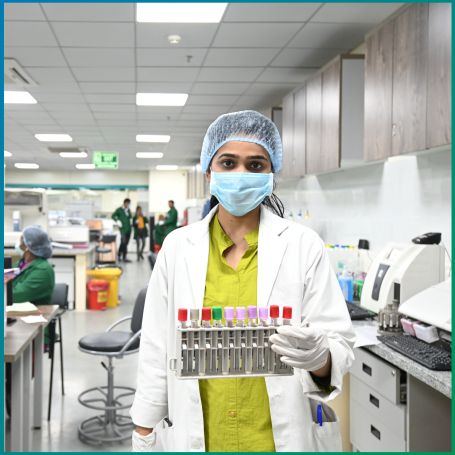
The Ultra TSH test is a highly sensitive diagnostic test used to measure the levels of thyroid-stimulating hormone (TSH) in the blood.

TSH is a hormone produced by the pituitary gland that regulates the function of the thyroid gland, which is essential for controlling metabolism, energy production, and overall hormonal balance. The TSH ultra test offers more precise results than standard TSH tests, making it particularly useful for detecting even subtle thyroid dysfunctions.
Thyroid disorders can lead to a variety of health issues, including weight changes, fatigue, mood disorders, and heart problems. Detecting these conditions early through a Ultra TSH test can help manage symptoms and prevent complications. It is particularly useful for patients who are undergoing thyroid hormone therapy, as it provides precise measurements of hormone levels, allowing for better treatment adjustments.
The ultra TSH normal range is typically between 0.4 to 4.0 milliunits per liter (mU/L), but it can vary slightly depending on the lab and the individual's health condition. For pregnant women, the normal range may be narrower due to the influence of pregnancy hormones on thyroid function. Always consult your doctor for the specific normal range used by your lab and personalized interpretation of your results.
Individuals experiencing symptoms of thyroid dysfunction such as fatigue, unexplained weight changes, depression, or irregular heartbeats.
1] Patients with a family history of thyroid disease.
2] Pregnant women or those planning to conceive, as thyroid health is crucial for fetal development.
3] Patients with previous thyroid issues who need monitoring for treatment effectiveness.
4] People undergoing thyroid hormone replacement therapy to assess proper dosage.
1] Normal TSH levels: Indicates the thyroid is functioning properly, within the ultra TSH normal range.
2] High TSH levels: Suggests that the thyroid may not be producing enough thyroid hormones (hypothyroidism). Your doctor may recommend further tests or thyroid hormone replacement therapy.
3] Low TSH levels: May indicate an overactive thyroid (hyperthyroidism), which may require treatment to regulate hormone production.
Diagnopein is an excellent choice for the Ultra TSH test in Mumbai, as it is a renowned pathology lab for blood tests offering reliable and precise diagnostics. With an advanced lab status, Diagnopein follows stringent quality standards to ensure the highest level of accuracy in every test. The Ultra TSH test, which measures thyroid-stimulating hormone levels, is crucial for diagnosing thyroid disorders, and Diagnopein guarantees accurate reports that you can trust for making informed healthcare decisions. Whether you're seeking a routine check-up or specialized testing, Diagnopein provides expert care and timely results in a patient-friendly environment.
1. Thyroid Stimulating Hormone (TSH)
No special preparation is required for the Ultra TSH test. However, inform your healthcare provider if you are taking any thyroid medications, supplements, or other drugs, as they may influence the test results.
The Ultra TSH test is a simple blood test. A small sample of blood is drawn from a vein in your arm and sent to the laboratory for analysis.
Yes, pregnancy can affect TSH levels. During pregnancy, TSH levels may fluctuate due to hormonal changes. Pregnant women often require closer monitoring of thyroid function, as both low and high TSH levels can impact the health of both the mother and the baby.
The TSH Ultra test is generally safe. The only minor risks include slight pain, bruising, or infection at the site where the blood is drawn.